If you ask most people, they’ll tell you that while eating an all-vegan diet is healthy, it probably isn’t going to do a whole lot in increasing your muscle mass or helping you perform better on the field. For many out there, the last thing they’d ever expect is for someone to succeed in a sport or fitness competition and admit to doing it all entirely on a vegan diet. That’s just impossible… right?
Well, as it so happens, not only is it not impossible, but the list of vegan athletes is growing more and more each year. Folks like the former New England Patriots quarterback Cam Newton, one of the greatest ultramarathoners in history Scott Jurek, and high-competing strongman Patrik Baboumian are all strict vegans and have performed at the highest level of physical performance possible. And these are just a handful.
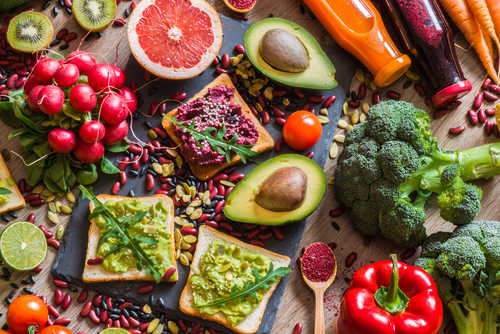
Here, we’ll be breaking down the different facets of being a vegan athlete as well as getting into the ever-present conversation surrounding protein and the different vegan forms you can get it in. We’ll also go over some of the pitfalls that come with a vegan diet and some of the things you’ll want to do to supplement your diet.
What Is A Vegan-Based Diet Anyway?
A vegan-based diet, being a vegan, “going vegan”. These all ultimately translate to the same thing: having a diet completely devoid of any meat, dairy, cheeses, or any other animal parts or byproducts. While there are varying degrees of being a vegan the primary goal is to be as far removed from animal use as possible.
Unlike vegetarians (who can consume eggs and dairy) vegans may go so far as to not eat certain genetically modified fruits and vegetables due to the inclusion of animal genes. A great example of this is the fact that gelatin is made from ground animal parts, thus making most gelatinous foods and sweets off-limits to a vegan, even if they otherwise may not be for a vegetarian.
Related: 11 Best Meal Replacement Shakes for Vegans
Why Can A Vegan-Based Diet Work For Athletes?
There are many misgivings about the nature of a plant-based (vegan) diet and that an athlete will be “missing out” on some things. This couldn’t be further from the truth.
In reality, a plant-based diet is one of the most conducive diets for an athlete. This is because these diets are high in carbohydrates while being low in fat. They are also rich in different vitamins and minerals as well as antioxidants. This all culminates in a fitness cocktail that, when implemented, puts you in a great position for most athletic sports. Not only that, but if supplemented just a bit through other things, it can be excellent for any physically demanding exercise or performance.
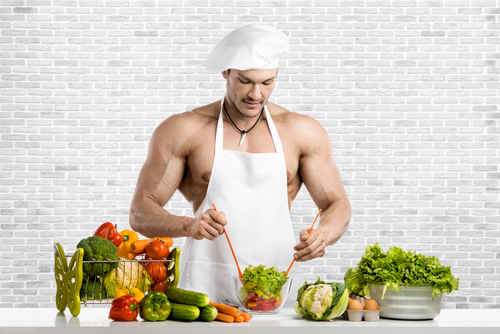
Carbohydrates
Carbohydrates (carbs) are the second of three fuel sources available in your body for activity, the first being sugar or glucose. If your body doesn’t have any available sugar to draw upon, it will pull from your carb reserves. These are arguably the “primary” source of fuel your body will draw on due to their ease in breaking down.
Fuel from carbohydrates is primarily used during high-intensity activities and exercises, often improving your endurance and overall physical performance. Because carbs are a fast-acting fuel source, things like marathon running or various sports training stand to gain the most benefit, often leading to strategic intake windows.
Fat
While our bodies do need fat to survive and function, we don’t need all that much. Taking on high amounts of fat in an athlete’s diet can be potentially quite detrimental. Because most animal products are high in saturated fat, they can actually be self-defeating for most athletes. This is often why the “boiled chicken breast” talks are often talked about when fitness enthusiasts do eat meat, as this is very low in fats while still retaining its protein.
Vitamins & Minerals
Vitamins and minerals are both incredibly important and essential for one’s health, whether you plan to get a workout in or not. In the case of athletes, however, these can have a dramatic impact on one’s performance, potentially increasing stamina, endurance, and overall energy production. Here are just a few examples of vitamins and minerals that you get from vegan sources that can greatly improve your time working out:
- Iron: Essential in the transportation of oxygen throughout the body, a lack of iron can directly impact you through increased fatigue as well as decreased performance. Great sources of iron are in spinach but also beans and many fortified breakfast cereals.
- Niacin: Also known as vitamin B3, niacin is an important nutrient that affects the entire body. It improves brain function while also helping regulate blood flow and blood fat levels. It can be found in peanuts, potatoes, and brown rice.
- Thiamin: Great for metabolic pathways, thiamin helps break down and absorb carbohydrates as well as branched-chain amino acids. They are found in grain products as well as black beans.
- Vitamin A: A very vegan-friendly vitamin, you can get vitamin A from a pretty wide selection of foods. This vitamin acts as an antioxidant, improving your immune system and supporting bone health. You can find vitamin A in carrots, spinach, sweet potatoes, and even pumpkins.
What Is Protein, And Why Do We Need It?
One health aspect we didn’t touch on yet is protein and its importance. While carbs are a great tool for some quick energy, they aren’t going to help build or develop muscle growth. For that, you’re going to need protein.
But what is protein, anyway? And why is it so important for developing muscle and improving one’s athletic performance?
Protein is an incredibly important part of our body and its ability to properly function and operate. In fact, protein is so important to us that the very word “protein” comes from the Greek proteios, which literally translates to mean “first quality” or “primary”. As in, the building block of our bodies.
Proteins are molecular substances that are made from numerous amino acids working to combine into a long chain. There are around 20 different amino acids that, together, form the thousands upon thousands of proteins within our body.
Despite protein carrying 20 different amino acids along its chain, only nine of them are essential for anyone’s diet, with the other 11 being entirely non-essential.
Essential Vs. Non-Essential Amino Acids
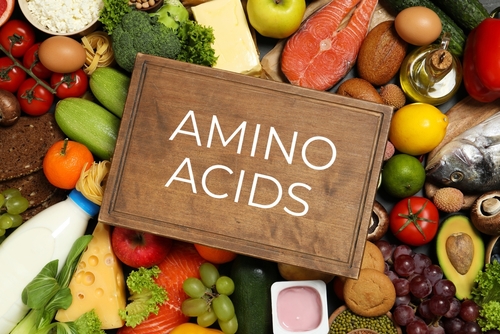
Before we continue, it should be understood that both essential and non-essential amino acids are important for the body’s development. The term “essential amino acids” is more accurately described as amino acids that can’t be synthesized in the body and must be absorbed from external dietary sources. Essential amino acids are important, not just because they can’t be synthesized naturally in the body, but also because they play a vital role in muscle growth, repair, and development.
On the other hand, “non-essential amino acids” simply refer to the 11 different amino acids that are naturally capable of being synthesized and produced in the body without an outside source supplementing them. Just as essential amino acids are important for the development of muscle growth, so too are non-essential amino acids important. Here, they focus on energy production and immune-based issues. These amino acids are also easily disposable, being naturally converted into glucose fuel.
The essential amino acids are as follows:
- Isoleucine
- Histidine
- Leucine
- Lysine
- Methionine
- Phenylalanine
- Threonine
- Tryptophan
- Valine
The other 11 non-essential amino acids are as follows:
- Alanine
- Arginine
- Asparagine
- Aspartate (or Aspartic Acid)
- Cysteine
- Glutamate (Glutamic Acid)
- Glutamine
- Glycine
- Proline
- Serine
- Tyrosine
What Does Protein Do?
While there are countless benefits that come with the body having the right amount of protein, here are the top 5 factors you should be aware of:
- Improves Metabolism: While the myth of a pound of muscle burning crazy amounts of calories has been debunked, it doesn’t change the fact that muscle and protein do speed up your metabolism, even when resting and not active.
- Maintains & Develops Muscles Mass: By regularly consuming throughout the day you can help both the building aspect as well as working to maintain your metabolism while outside.
- Improved Muscle Recovery & Growth: Just as protein is essential for building and maintaining muscle mass, it also plays a vital role in healing your muscles and helping them build back up after being broken down. When used in tandem with one another, this promotes muscle growth and increased strength and physical performance.
How Much Protein Does Your Body Need?
As you can see, protein plays a major role in an athlete’s diet, potentially more so than carbohydrates and the different vitamins, minerals, and antioxidants. Still, it’s also important to understand how much protein an athlete is going to need as a part of their daily intake.
Because athletes often operate their bodies very differently than those that aren’t working out, the amount of protein they need is, understandably, going to be different. This is because athletes tend to burn through protein more quickly as they are constantly repairing and rebuilding their muscles during exercise. They also use protein to better help their exhausted carbohydrate storages in the form of “glycogen”.
As such, while an average adult may need around 0.4 grams of protein per pound of body weight to avoid any protein loss, fitness athletes will need considerably more. Endurance athletes (marathon runners) need between 0.6 grams to 0.7 grams of protein per pound of body weight. On the other hand, athletes that are implementing strength training will need at least 0.7 grams up to 1.0 grams of protein per pound of body weight.
For example, if a boxer weighed 230lbs, and wanted to maintain their current muscle mass, they’d need to consume between 161 to 230 grams of protein per day.
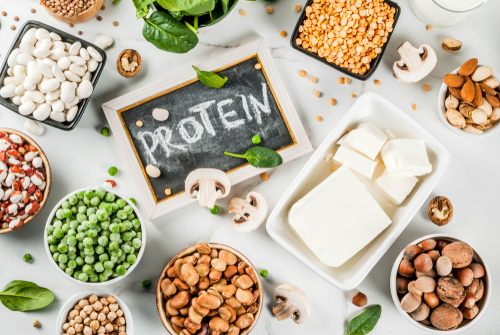
What Are The Different Types Of Protein?
There are two main sources or types of protein available. Animal-based protein and plant-based protein.
Animal-Based Protein
Animal-based protein is the most commonly understood protein source, and the one the vast majority of people around the world use to get the majority of their protein. This, as the name implies, comes entirely from an animal in some way, shape, form, or fashion. Some examples include beef, chicken, eggs, milk, cheese, whey, and other animals.
In addition to being more widely used and prevalent in society today, animal-based proteins are also considered to be “complete” proteins. This is due to the earlier point being made about essential amino acids. Here, most animal and animal-based proteins contain all nine essential amino acids. This means that you are essentially getting a complete protein breakdown when consuming animal-based foods.
Plant-Based Protein
Whereas animal-based proteins are derived from animals and their byproducts (milk, cheese, eggs, whey, etc.), plant-based (i.e., vegan-based) proteins come strictly from non-animal sources. This includes soy, chickpeas, brown rice, peanut butter, and peas, just to name a few.
Unlike animal proteins, plant proteins are regarded as “incomplete” proteins. This is due to the missing at least one of the essential amino acids.
Are Vegan Proteins Inferior?
When looking and comparing plant-based and animal-based proteins (vegan and animal proteins), it can seem pretty clear that vegan options are the inferior of the two. After all, animal proteins are regarded as complete proteins while whey proteins have been shown to have additional benefits on skeletal muscle as well as muscle tissue repair.
Meanwhile, vegan plant proteins are seen as incomplete proteins and don’t even offer as much protein per serving compared to animal protein. It should be quite apparent that one is clearly superior to the other.
However, that’s just looking at one side of the story.
The truth is that there’s more to a protein than whether it is complete or not. While plant proteins do require some things that animal proteins don’t, they are also healthier for your body overall with considerably more upsides.
#1. Vegan Protein Is More Nutrient Dense & Has More Fiber
Although animal meats are known for their impressive amounts of nutrients, it’s only if you’re willing to diversify yourself to eating just about ALL of the meat. That’s not just steak, filet, and T-bone, but also less savory parts like the liver and heart. You’ll get a pretty extensive amount of nutrients, but at a cost of eating parts, you otherwise may not be interested in.
With vegan proteins, however, you can get the same amount of nutrition entirely from different types of nuts, beans, and seeds. These foods, while not as large as a steak or ground chuck, are packed full of nutrients on a very similar spectrum, the one exception being the lack of B12 in plants compared to animals. Even in this area, with supplements and foods like fortified cereals and seaweed, you can bridge even that gap.
However, just because they share similar nutrients doesn’t mean they are the same. Remember when I said that you’re getting it “while not being as large as a steak”? That’s the truth! If you were to compare how much nutrition was afforded to you for a pound of nuts & seeds compared to a pound of beef, it wouldn’t even come close. Plant-based proteins are considerably more nutritious while also costing fewer calories. That means you can eat your fill and still be in a caloric deficit (making it perfect for those looking to lose weight). And that’s not all!
In addition, vegan proteins also contain fiber, something no animal protein has. Fiber is an important aspect of one’s digestion, ensuring proper gut health is developing while also ensuring you feel fuller and more sated faster. Fiber has also been linked with a reduction in cardiovascular disease.
#2. Animal Proteins Contain Saturated Fats
Animal proteins may have a complete amino acid profile for protein, but they are also higher in saturated fats. While there’s a lot of back and forth surrounding saturated vs. unsaturated fats, the fact of the matter is that, unless you’re trying to transition your body onto a ketogenic diet plan (which you can still do as a vegan), you don’t want to consume a ton of fat, especially as a burgeoning athlete.
As mentioned earlier, fats and fatty foods can be detrimental to our goal of being an athlete. You’re better off reducing these as much as possible and running your body on carbs, which can be burned quickly, and protein, which will build up your muscles. Animal proteins add fat into the equation and just make the process needlessly more difficult by comparison.
Vegan protein sources still have some fats. Plants like nuts and avocados have saturated fats as well, but they are a lot less in comparison.
#3. Processed Meats Are Potentially Carcinogenic
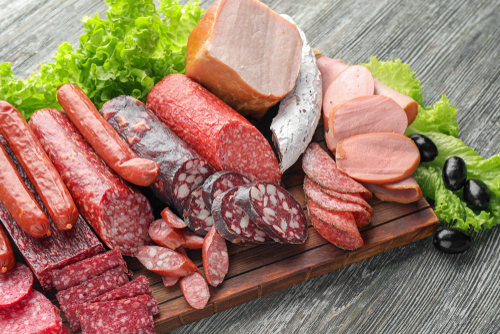
Though not quite to the same degree as smoking or air pollution, there have been reports of upwards of 50,000 people suffering from colorectal cancer due to processed red meats every year[1]. Processed meats include things like bacon or sausage, though grilled meats have also exhibited some carcinogenic compounds (though not to the same degree).
This is all to say that the same results weren’t seen at all with plant foods. As such, while the numbers aren’t incredible, you’re better off just avoiding red meat and sticking with vegan meals.
#4. Vegans Tend To Have Healthier Lifestyles
While definitely more correlative than directly causative, it’s worth pointing out. Not only because of the points already mentioned, but as a general mindset shift, vegans and those on a plant-based diet tend to live healthier lifestyles overall. There are a lot of thoughts on “why” that is, but one of the guesses is that by deciding to become vegan, you are actively making a choice to focus on your health. As a result, people in this category tend to exercise more, sleep less, drink more water and less soda, smoke less, etc.
This isn’t to say that those eating an animal-based lifestyle can’t be healthier than a vegan. However, it’s also true that, if you aren’t a vegan, you are less apt to put your health first in the same manner.
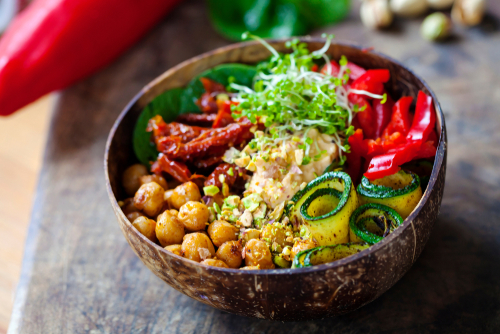
What Are The Best Forms of Vegan Protein?
For many athletes interested in becoming vegan, one of the biggest hang-ups and initial fears is how to maintain your current protein levels. And while that may seem like a reasonable fear to have to someone just getting started, the truth is that there are a whole host of different plant-based protein sources that can ensure you stay at exactly your existing protein amounts. In fact, when you realize just how plentiful protein is in plant-based foods, you’ll want to kick yourself for ever being worried in the first place!
Below is a breakdown of some of the most protein-rich whole foods you can eat as well as some great protein-dense alternatives you can add to supplement your diet.
Beans
A dish everyone loves, vegan and meat-lover alike, beans are a great staple food and contain around 15 grams of protein per cooked cup (170 grams). They are great sources of complex carbs as well as iron, potassium, manganese, and fiber. Beans have also been shown to help reduce belly fat, manage blood sugar, and reduce cholesterol.
Green Peas
Green peas are a great soup addition with nearly 9 grams of protein per cooked cup (160 grams). Green peas are a great inclusion for any vegan diet as a single serving carries with it over 25% of your daily vitamin A, K, and C needs as well as folate, thiamine, fiber, and manganese. It’s also a great source of zinc, copper, iron, and magnesium.
Hemp Seeds
While technically from the cannabis plant, hemp seeds are largely THC-free, only sharing very small trace amounts.
That said, what they do have fairly high amounts of is protein, with 9 grams per every 30-gram serving (3 tablespoons). They contain high amounts of omega-3s, calcium, zinc, selenium, and magnesium.
Hemp seeds are great as they can be eaten as a snack on their own, added to a smoothie, or made into granola or protein bars.
Lentils
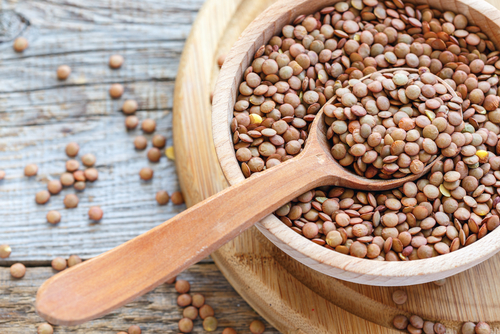
A great complement to beans, lentils come with 18 grams of protein per cooked cup (198 grams) and can be used in a variety of different ways. This can range from hearty and filling soups to parts of a tasty or refreshing salad or even as a snack all on their own.
Lentils are high in quality fiber which feeds your good gut bacteria in the colon. This works to help reduce the risks of diabetes, obesity, and heart disease. They are also rich in folate, iron, and manganese and hold host to a tremendous amount of antioxidants, making them incredibly healthy.
Nutritional Yeast
Nutritional yeast comes from a deactivated strain of yeast known as Saccharomyces cerevisiae. This yeast is sold in form of yellow flakes or yellow powder. It has a prominent “cheesy” flavor despite being completely vegan. It is often used in mashed potatoes or scrambled tofu. It can also be put on pasta or popcorn as a cheese alternative.
Around 16 grams of nutritional yeast (0.5oz) has 8 grams of protein as well as 3 grams of fiber. The fortified version is a great source of zinc, vitamin B12, copper, magnesium, and manganese. Just be mindful that you choose the option that specifies being fortified.
Spelt & Teff
Regarded as an ancient grain, spelt and teff are in the same category as barley, farro, einkorn, or sorghum. Spelt, in particular, is a gluten wheat while teff is gluten-free. They have between 10 and 11 grams of protein per cooked cup (250 grams) and are excellent sources of zinc, selenium, complex carbohydrates, iron, and fiber.
Both spelt and teff are very versatile and can be used in making flatbreads, risottos, and other baked goods.
Spirulina
Easily one of the top superfoods you can include in your diet, spirulina is a blue-green algae that has 8 grams of protein in a 14-gram serving (2 tablespoons). It also includes 95% of all daily copper requirements as well as over 20% of your daily iron requirements. Spirulina has high amounts of potassium, magnesium, manganese, and riboflavin.
While there are more tests later, as of now, spirulina is a great powder to add to your smoothies or to take immediately at the start of your day.
Mycoprotein
One of the more “controversial” vegan meat alternatives, mycoprotein uses a type of fungal plant known as Fusarium venenatum which offers around 16 grams of protein per 3.5oz serving. It also has around 5 and 8 grams of fiber and can be made similar to fillets, and veggie burger patties.
Seitan
Another popular alternative vegan option, seitan is a gluten-based wheat protein that can be used as a meat alternative for most dishes. In fact, unlike most soy-based meat alternatives, seitan carries a strong resemblance to the look and texture of real meat, making it a great intro for someone just starting out a vegan lifestyle. It can be found in most health food stores and can be made at home with vital wheat gluten.
Seitan contains around 25 grams of protein per 3.5oz serving which makes it one of the most protein-dense vegan options available. It’s also a great source of selenium as well as trace amounts of calcium, phosphorous, and iron.
The only downside to seitan is that, because it is a wheat product, those with gluten allergies will want to avoid it.
Soy Milk
Soy milk is a vegan milk made from soybean and has been fortified with different vitamins and minerals. It contains a respectable 6 grams of protein per cup while also being a solid source of vitamin B12 as well as vitamin D and calcium.
Soy milk is a fairly easy vegan alternative option and can be purchased in just about any supermarket making it incredibly versatile for people. It is great for cooking, baking, and any other place you’d use milk.
Tofu
Last up is the tried and true tofu. In addition to tofu, there’s also edamame and tempeh. While technically different, all originate in Asiatic countries as a staple and originate from soybeans. As a soybean, all three of these vegan meat alternatives are seen as complete proteins, meaning that they contain all 9 of the essential amino acids that your body needs to develop.
Tofu comes from soybean curds that have been pressed together similar to that of cheesemaking. Edamame is made from immature soybeans and must be steamed or boiled before being eaten. Tempeh is made from cooked and slightly fermented soybeans that are fully mature before pressing them into a block.
In terms of flavor, tofu is both the worst of the three and potentially the best. It doesn’t have a flavor on its own, but easily absorbs the flavor of the foods it is prepared with. Edamame has a slightly sweet and grassy taste to it while tempeh is known for its nutty flavor. All three can be used in soups and wraps, though tofu and tempeh are able to take on more burger-and-meat alternative appearances.
All three proteins have between 12 and 20 grams of protein per 3.5oz serving, with edamame being rich in folate and vitamin K and tempeh containing probiotics as well as magnesium and several B vitamins.
Are There Any Deficiencies To A Vegan Diet?
Vegan and vegetarian diets are not perfect, they are prone to vitamin B12 deficiencies. Getting enough protein, vitamin D, iron and iodine can also be problematic. To combat this you might want to look at vegan protein powders and other supplements.
Vitamin B12 is found almost exclusively in animal products so it can be tricky to get enough on a plant-based diet. The best way to combat this is by taking a supplement or including foods that are fortified with vitamin B12 such as soy milk, cereals, and nutritional yeast.
Vitamin D is found in mushrooms that have been exposed to sunlight, so including these in your diet or taking a supplement can help.
Iron is found in dark leafy greens, legumes, nuts, and seeds. Including these plant foods in your diet or taking a supplement can help.
Iodine is found in seaweed and iodized salt. Including these foods in your diet or taking a supplement can help.
Protein is found in legumes, nuts, seeds, and soy products. Including these foods in your diet can help.
While there are some potential deficiencies, a well-rounded vegan diet can provide everything you need to be healthy and thrive.
Related: 11 Best Vegan Protein Powders on the Market
Related: 13 Best Multivitamins for Women
Do Vegan Athletes Perform Better or Worse?
While it’s unclear the full effects of a vegan lifestyle in the athletic field, as we’ve mentioned earlier, if you’re correctly planning out your plant-based diet, people tend to see healthier versions of themselves compared to their times as meat eaters.
In the Netflix documentary series, “The Game Changers”, it was argued that veganism does indeed offer an edge to athletes over traditional omnivores. This was seen from people like Olympic weightlifter Kendrick Farris to the aforementioned marathoner Scott Jurek to even the legendary Arnold Schwarzenegger.
However, it’s also true that being vegan alone isn’t going to suddenly triple your lifting record or allow you to run twice as fast in half as much time. What is true is that there are no “immediate wins” no matter what your diet plan is or what supplements you’re taking. While you may have a slight advantage as a vegan, that’s only if your diet is as clean and precise as the omnivore alternative. If you’re just eating vegan cheese and crackers, your performance is going to stink just as bad as if you were eating cheeseburgers all day.
Who Are Some Successful Vegan Athletes?
Some of the world’s most successful plant-based athletes include Serena Williams, Kyrie Irving, and Nate Diaz. Each of these athletes has found success in their respective sports while following plant-based diets.
Serena Williams is one of the most successful tennis players in history. She has won 23 Grand Slam singles titles, more than any other woman in the Open Era. Williams has been following a vegan diet since 2012 and credits it with helping her to stay in top shape.
Kyrie Irving is a successful NBA player who was named the league’s MVP in 2014. Irving switched to a vegan diet in 2015 and has said that it has helped him to recover from injuries more quickly.
Nate Diaz is a successful UFC fighter who has won multiple championships. Diaz switched to a vegan diet in 2007 and has credited it with helping him to stay in top shape and recover quickly from injuries.
Think vegetarian and vegan athletes can’t build muscle? Take a look at Olympic weightlifter Kendrick Farris – he’s completely vegan! Farris switched to a plant-based diet in 2014 and has since set multiple American records in weightlifting.
These are just a few of the many successful vegan athletes in the world today. It is clear that a vegan diet can help athletes to perform at the highest level.
Conclusion
As you can see, while some benefits certainly can come from eating animal protein, that isn’t to say that vegan protein is in any way “inferior”. Far from it, when everything is taken into consideration, not only is a vegan diet not inferior to an animal-based diet, but in many, many cases it’s actually superior! At the very least, if you’re uncertain about a vegan diet or vegan proteins, this should ease any fears or misgivings you have.
If you’re someone just starting to learn about veganism as an athlete, and if you can do it, take it slow and progressively transition out of eating meats. Consider checking out some alternative versions so you can enjoy the health benefits of veganism while still having fun with the foods you love.
For athletes that are looking to make the switch or already have to an extent, understand that, while there are some things you’ll have to do to make sure your protein levels don’t change, by implementing them, you’ll see that your energy levels should increase, allowing you to push harder and perform better when at the gym or in your next workout.

Ryan is a former college wrestler and lifelong fitness fanatic with over 25 years in the industry. He’s run half marathons, tackled mud runs, placed in body transformation contests, and coached everything from wrestling to girls’ soccer.
Along the way, he’s tested hundreds of supplements and built a deep well of supplement knowledge. His work has appeared in Muscle & Strength, Testosterone Junkie, The Sport Review, and more. Today, he’s the editor-in-chief of this site, still training hard and helping others reach their goals. Connect with him on LinkedIn below.
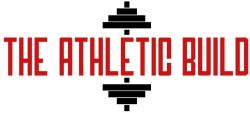
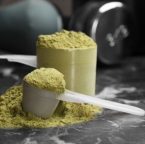

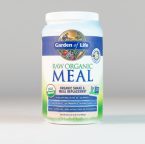
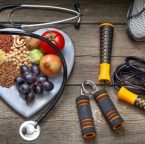

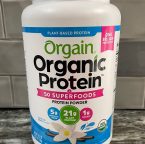


Be the first to comment